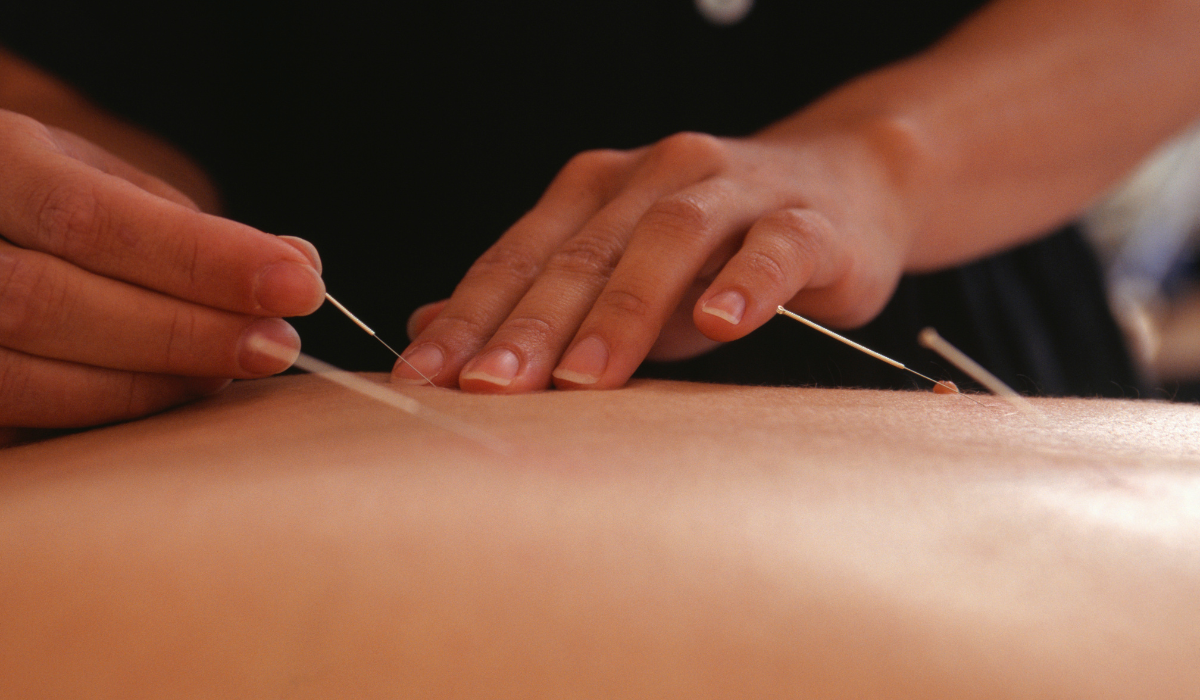Acupuncture has been long recognized for its ability to address various health conditions and promote overall well-being. In recent years, it has gained significant attention for its potential in improving male fertility. Acupuncture, a traditional Chinese medicine practice, involves the insertion of thin needles into specific points on the body to stimulate energy flow and restore balance. By targeting certain acupuncture points, this ancient therapy can enhance sperm quality, increase sperm count, improve hormonal balance, and reduce stress levels – all crucial factors for male fertility. Furthermore, acupuncture can be a non-invasive and natural alternative or complementary treatment option for individuals looking to optimize their chances of conception. This article explores how acupuncture can effectively support male fertility and the research behind its efficacy.

How does age impact male fertility?
## What are the major factors that contribute to male infertility?

Are there any lifestyle choices that can negatively affect male fertility?
Male infertility can be caused by various factors including abnormal sperm production or function, blockages in the reproductive tract, hormonal imbalances, genetic disorders, and lifestyle choices. Abnormal sperm production or function may occur due to certain medical conditions such as varicocele (enlarged veins in the testicles), infections, ejaculation issues, or exposure to toxins. Blockages in the reproductive tract can result from previous surgeries, infections, or congenital abnormalities. Hormonal imbalances can disrupt the production and maturation of sperm. Genetic disorders, such as Klinefelter syndrome or cystic fibrosis, can also lead to male infertility. Additionally, lifestyle choices like excessive alcohol consumption, smoking, drug use, obesity, and high levels of stress can negatively impact sperm quality and fertility.
Can stress or emotional factors play a role in male infertility?
Age can have a significant impact on male fertility. As men age, the quality and quantity of their sperm tend to decline. The production of sperm decreases, and the remaining sperm may have genetic abnormalities or reduced motility, making it more difficult for them to fertilize an egg. Additionally, older men are more likely to experience erectile dysfunction or other sexual health issues that can affect fertility. Research has also shown that advanced paternal age is associated with increased risks of certain health conditions in offspring, such as autism and schizophrenia. Overall, age plays a crucial role in male fertility, highlighting the importance of considering reproductive plans earlier in life.
What impact does diet and nutrition have on male fertility?
Yes, there are several lifestyle choices that can negatively affect male fertility. Smoking cigarettes, excessive alcohol consumption, and drug use can all have adverse effects on sperm health and production. Obesity and poor diet, specifically diets high in processed foods and low in fruits and vegetables, can also impair male fertility. Exposure to environmental toxins such as pesticides, chemicals, and radiation can damage sperm quality. Additionally, wearing tight-fitting underwear, prolonged exposure to heat (such as using saunas or hot tubs frequently), and excessive cycling can increase scrotal temperature, which can negatively impact sperm production. It is important for men who are trying to conceive to adopt a healthy lifestyle, including regular exercise, a balanced diet, avoiding harmful substances, and managing stress levels in order to optimize fertility.
Is there a connection between certain medical conditions and male infertility?

Yes, stress and emotional factors can potentially play a role in male infertility. Studies have shown that high levels of chronic stress can disrupt the hormone balance in the body, leading to decreased sperm production and quality. Psychological factors such as anxiety and depression can also contribute to issues like erectile dysfunction and reduced libido, which can affect fertility. Stress management techniques, counseling, and lifestyle changes may help alleviate these factors and improve male fertility.

Are there any environmental factors that can affect male fertility?
Diet and nutrition play a crucial role in male fertility. A healthy diet rich in essential nutrients, vitamins, and minerals can optimize sperm production, motility, and morphology. Specific nutrients like zinc, selenium, vitamin C, vitamin E, and folate are important for sperm quality and function. On the other hand, a poor diet high in processed foods, saturated fats, and excessive alcohol intake can negatively affect sperm parameters, hormone levels, and reproductive health. It can lead to lower sperm count, reduced motility, abnormal sperm shape, and increased DNA damage. Therefore, maintaining a well-balanced diet and ensuring adequate intake of key nutrients is vital for promoting male fertility.
What are the treatment options available for male infertility?
Yes, there can be a connection between certain medical conditions and male infertility. Medical conditions such as varicocele (enlarged veins in the testicles), infections like epididymitis or sexually transmitted infections, hormonal imbalances, genetic disorders like Klinefelter syndrome or cystic fibrosis, and certain chronic illnesses like diabetes or kidney disease can all contribute to male infertility. These conditions can affect sperm production, quality, or transport, leading to difficulties in achieving pregnancy. It is important for individuals experiencing infertility to undergo medical evaluations to identify any underlying medical conditions that may be contributing to the issue.

The Role of Acupuncture in Enhancing Male Fertility
Yes, there are several environmental factors that can affect male fertility. Exposure to certain chemicals and toxins, such as pesticides, lead, and heavy metals, has been associated with reduced sperm quality and quantity. Additionally, high levels of air pollution have been linked to lower sperm count, motility, and morphology. Other factors like radiation, heat exposure (such as from saunas or hot tubs), and lifestyle choices including smoking, excessive alcohol consumption, and drug use can also negatively impact male fertility. It is important to minimize exposure to these environmental factors to maintain optimal reproductive health.
Boost Your Website’s Rankings with the Top WordPress SEO Agency in Reading, Berkshire
There are several treatment options available for male infertility depending on the underlying cause. These may include lifestyle changes such as quitting smoking or reducing alcohol consumption, addressing underlying medical conditions such as hormonal imbalances, infections, or varicoceles through medication or surgery, and using assisted reproductive techniques such as intrauterine insemination (IUI) or in vitro fertilization (IVF) with intracytoplasmic sperm injection (ICSI) to help achieve pregnancy. Additionally, fertility medications may be prescribed to improve sperm production and quality. The choice of treatment depends on the specific diagnosis and recommendations of a fertility specialist.

In conclusion, acupuncture has shown promising results in improving male fertility. It has been found to enhance sperm quality, increase sperm count, and improve overall reproductive health. By targeting specific acupoints, acupuncture helps regulate hormone levels, reduce stress, and improve blood circulation to the reproductive organs. Additionally, it may also address underlying conditions such as varicoceles or hormonal imbalances that could be affecting fertility. While more research is needed to fully understand the mechanisms behind acupuncture’s effects on male fertility, the available evidence suggests that it can be a valuable complementary therapy for couples struggling with infertility. However, it is important to consult with a qualified acupuncturist and work alongside conventional medical treatments for optimal results.